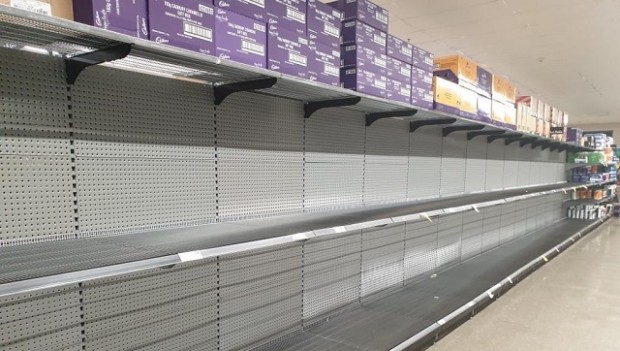
It was only nine days ago that the first of several deaths in Australia was linked to the COVID-19 virus, better known as the coronavirus, though to the local business community it likely feels like months.
After years of sputtering consumer sentiment – as well as the tragic impact of the holiday bushfire season on retailers rural and urban – the rise of panic surrounding the virus’s spread couldn’t have come at a worse time.
The Australian Bureau of Statistics said on Friday that retail sales in January were down year on year due to the effect of the bushfires on the Australian consumer, and that February’s result was likely to be worse given the pandemic of fear sweeping across the country.
Several retailers releasing soft half-year results have largely pinned their issues on the virus – including Myer, David Jones and Super Retail Group, to name a few.
To help lessen the impact of the slowdown, travel group Flight Centre is allowing staff to cut their full-time employment to four days a week in order to limit its expenses during the quiet period.
“A shorter work week is one of the options that has been made available to our support and sales people over the next couple of months,” Flight Centre spokesperson Hadyn Long told Inside Retail Weekly.
“This can then be ramped back up quickly when demand picks up.”
Although just when demand will return is unclear, according to Swinburne Business School’s lecturer of marketing, Dr Jason Pallant, who notes the virus’s “horrible” timing for retailers.
“We won’t necessarily know the real impact on retail for a few months as earnings and sales figures catch up,” Pallant told IRW.
“However, I would expect to see a decline in overall retail sales and a shift more towards online due to consumer uncertainty.”
Early research seems to back up Pallant’s prediction, with
Nielsen research showing a more than 45 per cent growth in online grocery sales over the last few weeks, as consumers look to avoid public areas – or get around the recent rush for toilet paper and similar items.
Pallant said the recent “panic buying” of household goods has turned off many shoppers from visiting supermarkets and shopping centres, creating a challenge for bricks-and-mortar retailers as even further reduced foot traffic lowers potential earnings.
‘This is not a pretend scenario’
In light of the impacts already felt, many retailers have opted to take action. Insolvency and business recovery firm Jirsch Sutherland, for example, has created a specific coronavirus hotline to unclog its phone lines due to the vast amount of businesses and specialists calling for advice.
“This is the first time we’ve gone as far as to [make a specific hotline],” national managing partner Bradd Morelli told IRW.
“A few weeks ago there seemed to be a general air of ‘this won’t affect us’, but now as the situation appears to be worsening and businesses are being affected by supply chain issues, a lack of confidence among customers and a decrease in customers, it’s now front of mind.”
According to Morelli, the major concerns of business owners and directors are about cash flow – the ability to pay staff, rent, utilities, and statutory requirements such as tax and superannuation, as well as the delayed supply of products.
And it isn’t just business owners who are worried. Accountants and lawyers are also using the hotline to understand how they can better advise their business clients moving forward.
For Morelli, the advice is the same either way: continue to monitor the situation carefully, communicate with creditors, have a coronavirus plan to minimise the risks and impacts on the business, and perhaps most importantly, don’t leave things too late.
“This is not a pretend scenario, it’s real,” Morelli said.





